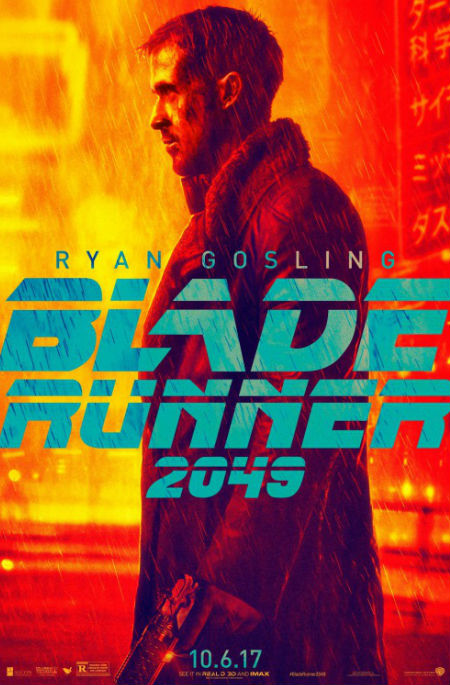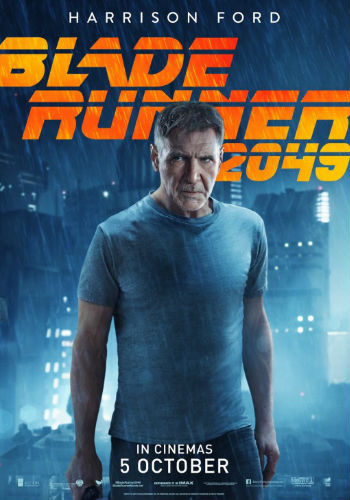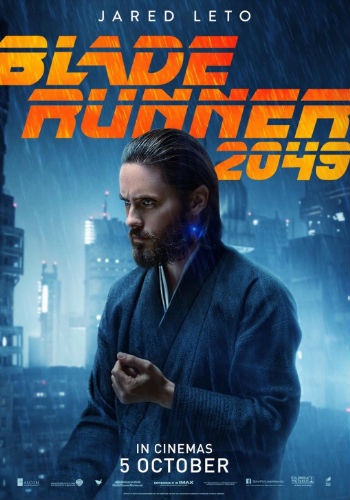
Viewing the future through the lens of science fiction is often an either/or proposition.
You are either regaled with an idealised utopia where want, need and hunger are banished, where humanity has found its zenith and fulfilment its apotheosis; or you are confronted in the most brutal and nihilistic of ways with a world that is irretrievably broken ecologically, societally, where humanity has not just foundered but is irreparably broken.
Despite initial appearances to the contrary as we gaze down upon a Greater Los Angeles that has clearly seen better, and much more verdant, days, and are taken to a Las Vegas still reeling from the radioactive artefacts of a dirty bomb, the Denis Villeneuve (Arrival)-directed Blade Runner 2049 manages to slide somewhat languidly between these two possible outcomes, ostensibly bleak and lost, but with a beating human soul which finds its rhythm in the most unexpected of people and places.
Very much echoing the look, feel and pace of its much-celebrated 35 year old predecessor, Blade Runner, the film nevertheless is very much its own dystopian creature, offering up a world that is irrefutably mired in the deleterious results of multiple poor decisions by humanity but which is somehow finding a way to muddle through.
Unfortunately for the very many people who cannot afford to flee to the paradisiacal surrounds of the off-world colonies either through poverty, illness or simple lack of will or opportunity, muddling through involves skulking in the endless darkened shadows of rain and skyscrapers, or the shantytowns beyond Greater Los Angeles where Mister Cotton (Lennie James) oversees an army of complaint child labourers eking out an existence far beyond the reach of child labour laws or compassion.
It’s a brutal world all right, much like that of 2019, but with the added burdens of ecological collapse, further societal decay and an overwhelming sense that humanity, on what’s left of the earth anyway, has seen far, far better days.

In this blighted paradise lost lives Blade Runner K (later “Joe”), played with deeply-passionate detachment by Ryan Gosling, who looks impassive and disengaged throughout, but not, it should be noted, without emotion, in love as he is with his holographic companion Joi (Ana de Amas), who has transcended her programming and is authentically and without regard for the limits of 1s and 0s in love with him, and who, when it appears he may be more than just a replicant hunting down his own kind, dares to soar with the hope that he is more than he thought.
It is the innate humanity of K, and that of other replicants we come to know through this stunningly hopeful and beautifully human film which defines the spirit of Blade Runner 2049, a film which, despite the overt and covert racism that is often sent K’s way by people looking for easy scapegoats and handy excuses for their own fallen state, carries it with a great deal of hope that does not necessarily lies with the rump of broken people that populate its expansive and gently-unfurling narrative.
It is difficult at first to see how anyone could be hopeful in a world as degraded in every possible way as this one.
Effectively a police state overseen by a still omnipresent LAPD run by an uncompromisingly tough Lt. Joshi (Robin Wright) where replicants are still hunted down with a merciless lack of impunity, Villeneuve offers up, with his trademark thoughtful, meditative style, a world where Niander Wallace (Jared Leto) has taken up the remains of the now-fallen Tyrell Corporation, which if you recall made the original almost-human replicants, and is seeking to extend his kingdom throughout the stars.
His is an ambition of power, greed and control, of merciless slaying and ruthless intent, cloaked in the calm, soothing words of faux-idealism; in other words, he sounds as if he gives a damn but his only concern is with the perpetuity and extension of his legacy, enforced with ever-escalating force and zeal by Luv (Sylvia Hoeks) .
But it is K, who finds his life simultaneously unravelling and growing in ways wholly unexpected as an investigation into a run-of-the-mill replicant killing, that of Dave Bautista’s Sapper Morton, escalates into a world-changing series of revelations that has the power to upend, in spectacular fashion, the established order of things.
You may wonder why anyone would want to defend the dystopian brokenness that exhaustively defines Blade Runner 2049 but people do, and K has to decide which side of the future he wants to land on, whoever he really is and whatever his destiny might be.

It is a destiny that brings him into contact with Rick Deckard (Harrison Ford reprising his role) who, along with Rachael (Sean Young), found some measure of peace in the years following the tumultuous events of Blade Runner (a peace now finding itself being systematically and at times, violently torn apart).
To reveal anymore would be to career headlong, with slow and deliberate movements, into inevitable and copious spoilers, but suffice to say Deckard and K find themselves inextricably intertwined as the languidly-unspooled but still emotionally powerful and revelatory narrative plays out.
The film may be long at 163 minutes, but Villeneuve uses every last minute to brilliantly exacting effect, augmented by the moody, Vangelis-reminiscent music of the incomparable Hans Zimmer and a visual sensibility that recalls but never apes its predecessor, balancing reveal, philosophical ruminations on the nature of humanity, and introspection to equal measure.
Blade Runner 2049, for all its great narrative leaps and stunning reveals, is never in a desperate hurry to get anywhere, an effective tactic that allows plenty of ruminative time for long thoughtful stares, contemplative conversations and moodily-evocative visuals which are never less than wholly arresting in every day.
The film may look slow-moving and impassive at first glance, but like a duck paddling furiously unseen beneath the surface of the water, it is accomplishes a great deal through its gloriously thoughtful, insightful and damn near perfectly-paced, story-rich running time.
Blade Runner 2049 is, quite simply, magnificent – meditative, poetic, heartfelt, possessed of an extraordinary narrative soul and a gorgeous visual aesthetic, a dark vision of the future that remains, in the most unexpected of places, redeemably hopeful and defiantly human.